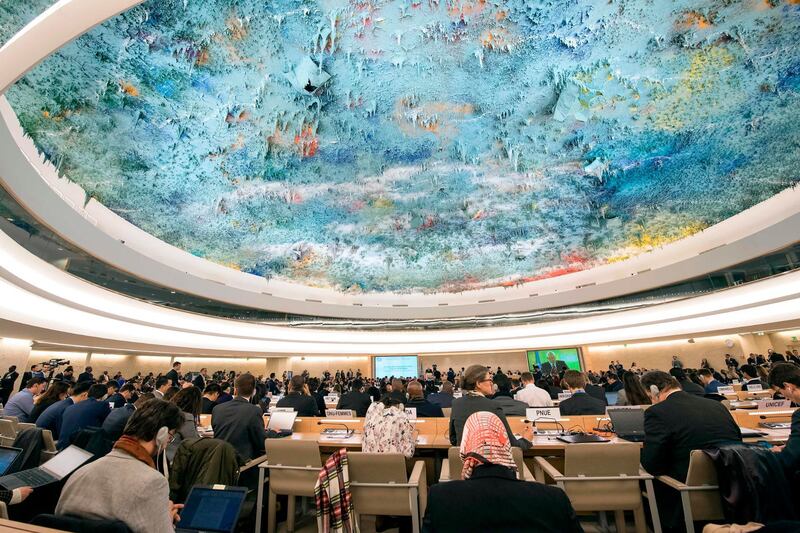The power of the United Nations lies in consensus. When members find themselves divided on an issue, the ability of the UN to resolve conflict and improve the lives of people all over the world quickly disintegrates. That is the predicament of the UN Security Council, which has been hobbled by disagreement for years.
As world powers have turned the council into an arena for political point scoring, vital steps to alleviate suffering in Syria, Palestine and elsewhere have not been taken.
The UN Human Rights Council is no different. On Friday, the council voted to extend an international probe of alleged war crimes committed in Yemen, following the publication of a report last month documenting abuses by the Iran-backed Houthi rebels and the Saudi-led coalition. It passed with 21 votes – less than half of the council – with eight votes against and 18 abstentions. It follows criticism of last month's report by the coalition and Yemen's internationally recognised government, who argued that it played down Houthi atrocities.
While it is vital to call out and prevent abuses in a tragic war that has killed 10,000 people, it is unclear how a such a tenuously agreed motion can improve the lives of ordinary Yemenis.
But there is a deeper point, regarding Yemen's own sovereignty. The coalition has called for Yemen's domestic human rights commission to take charge of future investigations, reflecting the desire for national autonomy to be respected in a war that began with a coup d'etat. Since the Houthis seized territory from the government of President Abdrabu Mansur Hadi in 2014, millions of Yemenis have suffered under their misrule.
The decision to extend the probe lacked the consent of the Yemeni state itself, and without guarantees of sovereignty, there can be no meaningful international co-operation.
As the UN has proven many times before, progress on conflict cannot easily emerge from flawed processes. And that has disturbing implications for the besieged people of Yemen.





